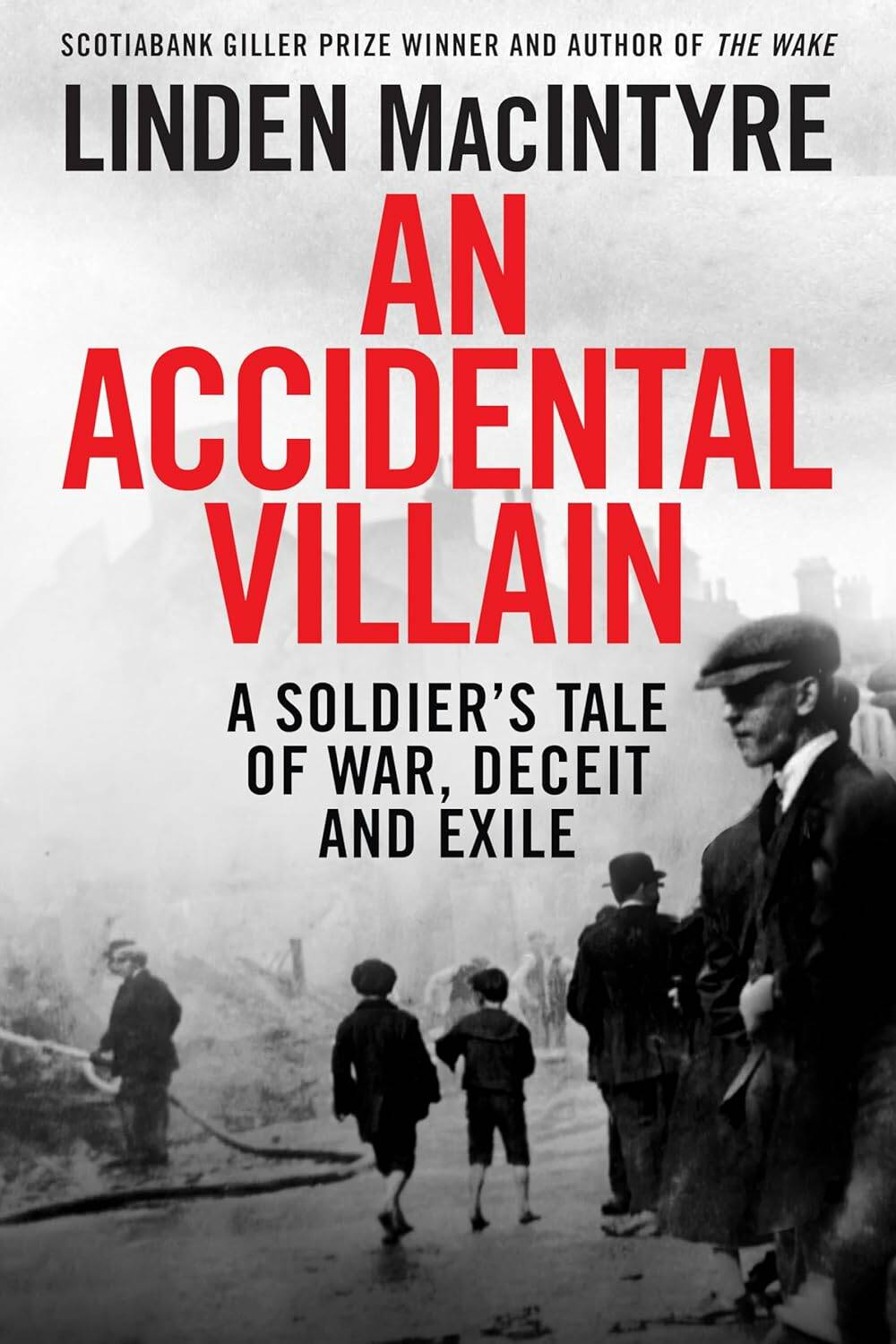Officer’s legacy tainted by Irish war
Advertisement
Read this article for free:
or
Already have an account? Log in here »
To continue reading, please subscribe:
Monthly Digital Subscription
$0 for the first 4 weeks*
- Enjoy unlimited reading on winnipegfreepress.com
- Read the E-Edition, our digital replica newspaper
- Access News Break, our award-winning app
- Play interactive puzzles
*No charge for 4 weeks then price increases to the regular rate of $19.00 plus GST every four weeks. Offer available to new and qualified returning subscribers only. Cancel any time.
Monthly Digital Subscription
$4.75/week*
- Enjoy unlimited reading on winnipegfreepress.com
- Read the E-Edition, our digital replica newspaper
- Access News Break, our award-winning app
- Play interactive puzzles
*Billed as $19 plus GST every four weeks. Cancel any time.
To continue reading, please subscribe:
Add Free Press access to your Brandon Sun subscription for only an additional
$1 for the first 4 weeks*
*Your next subscription payment will increase by $1.00 and you will be charged $16.99 plus GST for four weeks. After four weeks, your payment will increase to $23.99 plus GST every four weeks.
Read unlimited articles for free today:
or
Already have an account? Log in here »
This well-written historical narrative by Toronto author and broadcast journalist Linden MacIntyre recounts episodes in the controversial life of a British army officer, Sir Hugh Tudor (1871-1965).
Tudor served in outposts throughout the British Empire, fighting in the Boer War and the First World War. But it was his role as chief of police in Ireland during the Irish War of Independence in the early 1920s that defined his career. This grim struggle between the Irish Republican Army (IRA) and the Royal Irish Constabulary (RIC) is the main focus of MacIntyre’s account.
By 1920, Ireland was rife with political unrest. Irish militants wanted to sever all ties with the United Kingdom and create an independent Irish state. The military wing of the Irish nationalist movement, the IRA, was pursuing a campaign of intimidation and assassination against the Irish police, the RIC, a hated symbol of British rule.

Joe Passaretti / Canadian Press files
Linden MacIntyre
The British government was determined to keep Ireland within the British Empire. Political concessions could be made; Ireland could be granted an autonomy analogous to Canada. But first, the insurrection would have to be crushed.
To achieve this end, British prime minister David Lloyd George and his cabinet — most notably, minister for war Winston Churchill — formulated a strategy.
As MacIntyre notes, the British leadership was averse to declaring martial law in a country so close to home. Rather, they saw the Irish unrest as a massive crime wave, to be dealt with by a revamped police force.
It was this new, more aggressive approach to policing that was the essence of Britain’s response to insurrection in Ireland. The RIC would be complemented by paramilitary units composed of unemployed English soldiers from the Great War: the Black and Tans and the Auxiliary Division.
Chosen to lead the police was a close friend of Churchill, Major General Hugh Tudor. He was given a broad mandate to pacify Ireland, and enjoyed the full support of Churchill and prime minister Lloyd George.
Tudor, in turn, gave his constables and officers the widest latitude in combatting Irish rebellion. While the police were doing a military job, they were not subject to military discipline.
Under Tudor’s watch, the Black and Tans and Auxiliaries engaged in looting, arson and murder of civilians. The war degenerated into a cycle of outrages and reprisals. As MacIntyre writes, the war “had become a ghoulish competition over who had the greatest appetite for murder, the greatest tolerance for grief.”
A negotiated settlement ended the conflict between Ireland and Britain in late 1921. Tudor’s next assignment, again under the sponsorship of Churchill, was military commander and civilian police chief in Palestine.
After his tenure in Palestine, Tudor emigrated to, and spent the rest of his life in, Newfoundland, where he became a businessman.

But because of his role as commander of the Black and Tans, he had to live with the constant threat of assassination attempts.
Tudor had fought valiantly in the First World War, but his legacy would be tainted by his association with the excesses of paramilitary policing in Ireland. He became, MacIntyre says, “an accidental villain in the epic Irish drama.”
MacIntyre has depicted the waning years of the British Empire in an excellent work of historical non-fiction.
Graeme Voyer is a Winnipeg writer.
Linden MacIntyre will launch The Accidental Villain in Winnipeg on Tuesday, Oct. 14 at 7 p.m. at McNally Robinson Booksellers’ Grant Park location, where he’ll be joined in conversation by Reg Sherren.


